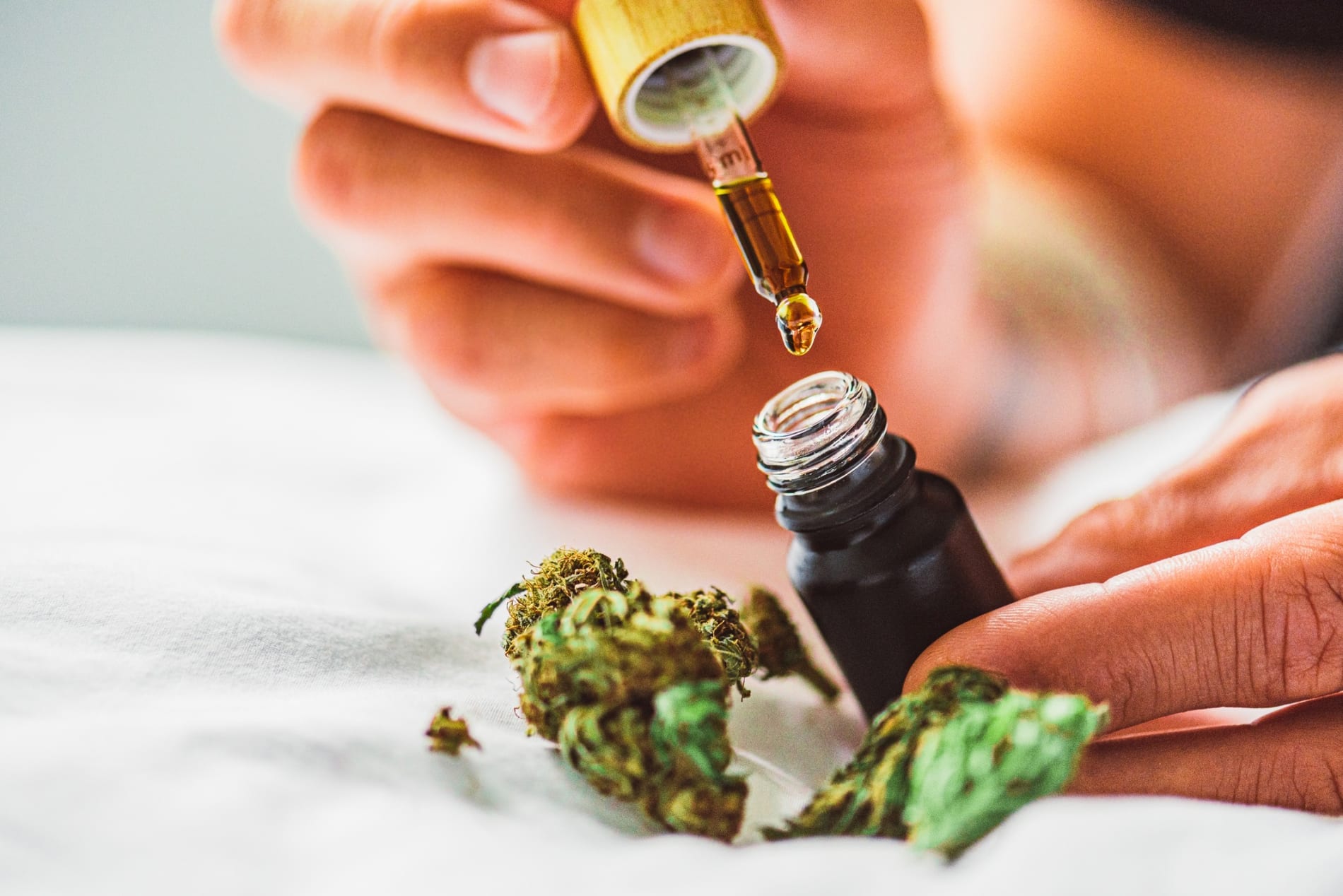Exactly How Medical Marijuana Is Transforming Pain Monitoring Approaches in Medication
Medical marijuana is improving how we come close to discomfort monitoring in medicine today. Its special communication with the body's endocannabinoid system provides brand-new avenues for relief, specifically for chronic pain patients. As even more patients look for options to standard drugs, it is vital to check out the advantages and challenges this shift presents. What implications does this have for individualized therapy alternatives and client care? Allow's check out the developing landscape with each other.
Recognizing Clinical Marijuana and Its Components
Clinical marijuana is an effective device in discomfort monitoring, thanks to its special parts. You'll find that it consists of different cannabinoids, like THC and CBD, which engage with your body's endocannabinoid system. THC, or tetrahydrocannabinol, is understood for its copyright effects and can help in reducing discomfort assumption while advertising leisure. On the other hand, CBD, or cannabidiol, offers discomfort alleviation without the high, making it an eye-catching option for those who prefer to avoid copyright effects.
Along with cannabinoids, terpenes play a significant duty in the healing impacts of cannabis. These aromatic compounds not only add to the plant's fragrance however additionally boost its pain-relieving properties. By comprehending these components, you can make enlightened choices about utilizing medical marijuana for pain monitoring, customizing your approach to match your certain needs and choices. Eventually, this understanding encourages you to navigate your pain alleviation trip successfully.

The Scientific research Behind Marijuana as a Pain Reducer
While lots of people look for alternate pain alleviation techniques, the scientific research behind marijuana discloses its effectiveness as an all-natural analgesic. Marijuana consists of cannabinoids, such as THC and CBD, which interact with your body's endocannabinoid system. This system plays an essential role in managing state of mind, swelling, and discomfort. When you consume cannabis, these cannabinoids bind to receptors in your mind and immune system, aiding to modulate pain perception.
Research shows that marijuana can reduce persistent pain, making it especially useful for conditions like arthritis, fibromyalgia, and neuropathic discomfort. In addition, the anti-inflammatory residential properties of CBD can reduce discomfort without the psychoactive effects related to THC. This twin action makes marijuana a flexible choice for several pain monitoring approaches. By comprehending these mechanisms, you can value just how cannabis not only modifies the discomfort action however likewise improves your overall well-being, providing an alternative technique to pain relief.
Contrasting Cannabis With Typical Discomfort Management Options
When considering discomfort relief, you might wonder how cannabis stacks up versus standard choices like opioids or NSAIDs. While cannabis has actually shown encouraging effectiveness in managing discomfort, it's important to evaluate its advantages versus possible negative effects. Let's check out just how these two approaches contrast in your discomfort administration journey.
Effectiveness of Cannabis
Exactly how does cannabis pile up versus standard discomfort administration choices? Lots of individuals locate cannabis to be effective in relieving persistent pain, often citing its capability to minimize discomfort without the need for opioids. Study suggests that cannabis can target specific pain paths, giving alleviation for problems like arthritis and neuropathy. Unlike traditional medications, which might feature a long list of negative effects and dependence concerns, cannabis offers a various technique that some individuals prefer. You may notice that while opioids can plain discomfort, cannabis often tends to boost your general experience by enhancing state of mind and sleep. This multifaceted effect makes marijuana an appealing alternative for many, specifically those seeking an extra natural remedy in their pain monitoring journey.
Side Results Comparison
Although standard pain administration choices like opioids and nonsteroidal anti-inflammatory drugs (NSAIDs) are commonly made use of, they commonly come with an array of adverse effects that can impact your lifestyle. Opioids can cause bowel irregularity, reliance, and nausea, while NSAIDs might trigger cardiovascular risks and intestinal issues. In comparison, clinical marijuana tends to have a different negative effects profile. While you may experience completely dry mouth, wooziness, or exhaustion, these impacts are typically much less serious than those associated with opioids. Several individuals report that cannabis provides reliable pain alleviation without the risk of dependency. By contrasting these alternatives, you can make an extra educated choice about your discomfort administration technique, considering the benefits and disadvantages of each approach (Kentucky Medical Marijuana Doctor).
Individual Experiences: Success Stories and Endorsements
Numerous people like you have actually located relief through medical marijuana, sharing motivating stories of their healing trips. These endorsements highlight not just pain alleviation, however a transformation in their overall top quality of life. You've got the opportunity to explore these powerful experiences and see just how cannabis could match your very own pain management plan.
Personal Recovery Journeys
As people seek relief from persistent discomfort, countless recovery journeys highlight the transformative power of medical marijuana. You might hear regarding those who've switched standard painkillers for cannabis, experiencing fewer side results while appreciating boosted performance. Your journey can mirror their own, filled with opportunities and restored toughness as you explore the healing potential of medical marijuana.
Transformative Discomfort Relief
The tales of people discovering alleviation via clinical cannabis illustrate its prospective for transformative pain alleviation. You could learn through a person that had problem with persistent pain in the back for several years, only to find that a specific pressure of marijuana substantially lowered their pain. Another individual may share exactly how, after fighting migraine headaches, they located that a cannabis-infused oil not only eased their pain however boosted their total from this source quality of life. These endorsements highlight an usual theme: the capacity to redeem daily activities when prevented by pain. Individuals typically report fewer side impacts compared to typical medicines, leading to a newly found sense of freedom. As these experiences spread out, a lot more individuals are discovering clinical cannabis as a viable alternative for handling their pain effectively.
Lawful Landscape and Access of Medical Cannabis
While navigating the evolving landscape of medical marijuana can be difficult, recognizing the legal frameworks and availability alternatives is important for clients seeking relief. Laws vary substantially from one state to another, so it's vital to familiarize yourself with your regional laws. Some states have legalized clinical marijuana entirely, while others might still impose limitations or otherwise allow it in any way.
To gain access to medical marijuana, you generally require a suggestion from a licensed doctor, highlighting the importance of finding a physician knowledgeable about marijuana treatments. When you get a suggestion, you can get a medical marijuana card, which grants you access to dispensaries.
Bear in mind that also in states where cannabis is legal, there might be limitations on the sort of products available, in addition to amount limitations. Remaining educated about these policies can encourage you to maximize the advantages clinical cannabis has to use.
Obstacles and Factors To Consider in Integrating Cannabis Into Treatment

You'll also face the preconception bordering marijuana use, both from medical care suppliers and individuals, which could impede open conversations about treatment alternatives. Ongoing research study is needed to understand the lasting impacts and efficacy of marijuana in pain monitoring.
The Future of Pain Monitoring: Predictions and fads
As health care remains to progress, pain management is established to undergo substantial improvements that could improve therapy approaches. You'll likely see a shift in the direction of more individualized medication, where treatments are tailored to your unique genetic make-up and specific pain conditions. Medical cannabis is expected to play a crucial duty in this evolution, offering safer choices to opioids and reducing dependence on typical pain relievers.
Telemedicine will also end up being much my latest blog post more widespread, enabling you to speak with experts from the comfort of your home. This comfort can boost accessibility to discomfort administration resources and support. Additionally, advancements in modern technology, such as wearable gadgets, will enable real-time surveillance of pain levels, empowering you to handle your problem a lot more effectively.
As research study remains to validate the advantages of medical marijuana, you can expect extra doctor embracing these treatments, ultimately causing enhanced outcomes and high quality of life.
Regularly Asked Questions
What Are the Possible Side Effects of Clinical Cannabis for Pain Monitoring?
When using medical marijuana for discomfort management, you may experience side results like dizziness, dry mouth, exhaustion, or changes in hunger. It is essential to keep track of just how your body responds and consult your healthcare provider if needed.
Exactly How Is Dose Determined for Medical Marijuana in Pain Treatment?
When determining dose for medical marijuana, you consider aspects like your weight, pain extent, and individual tolerance. It's important to start low and gradually increase up until you locate one of the most reliable dosage for your demands.

Can Medical Cannabis Interact With Various Other Medicines?
Yes, medical marijuana can communicate with other medicines. It's important to review your current prescriptions with your doctor to stay clear of potential adverse effects or decreased performance of your treatments while using cannabis.
Is Medical Marijuana Effective for All Kinds Of Discomfort?
Clinical cannabis isn't reliable for all kinds of discomfort. It might aid with chronic discomfort, yet reactions differ. You must consult a medical care expert to establish if it appropriates for your specific condition.
What Are the Costs Connected With Medical Marijuana Treatment?
When considering clinical cannabis treatment, you'll find prices differ extensively. Costs include appointments, product costs, and prospective insurance policy coverage. It's necessary to research study and spending plan as necessary for a substantial understanding of your financial commitment.
Clinical see this marijuana is reshaping how we come close to pain management in medicine today. By recognizing these parts, you can make enlightened decisions about using medical cannabis for pain management, tailoring your strategy to suit your particular requirements and choices.Study reveals that marijuana can decrease chronic discomfort, making it especially beneficial for problems like joint inflammation, fibromyalgia, and neuropathic pain. By recognizing these mechanisms, you can value exactly how marijuana not just alters the pain reaction but additionally enhances your overall well-being, providing a holistic approach to discomfort relief.
What Are the Prospective Side Results of Medical Marijuana for Discomfort Administration?